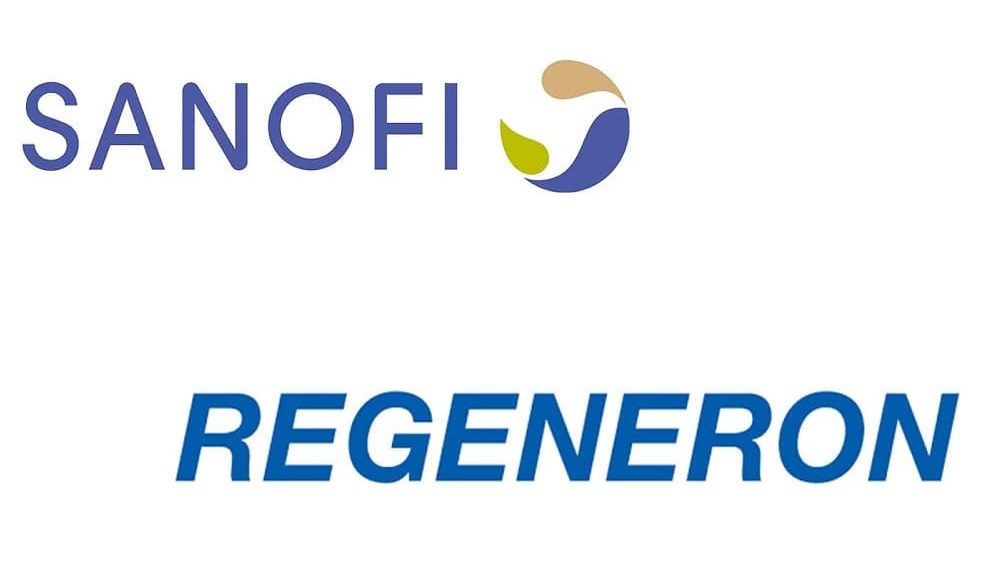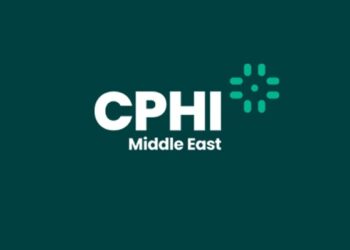Regeneron Pharmaceuticals, Inc. and Sanofi announced that the first positive Phase 1 clinical data assessing cemiplimab as a potential treatment for advanced non-small cell lung cancer (NSCLC) will be shared at the 2018 American Society of Clinical Oncology (ASCO) Annual Meeting. Cemiplimab is an investigational human monoclonal antibody targeting the immune checkpoint PD-1.
As published online in advance of ASCO, interim results from the Phase 1 dose-escalation phase and expansion cohort of patients with advanced NSCLC showed that cemiplimab monotherapy resulted in an overall response rate (ORR) of 29 percent (six of 21 patients, all of which were partial responses or non-complete responses or non-progressive disease) and a disease control rate of 57 percent (12 of 21 patients, including ORR and six stable disease or non-complete responses or non-progressive disease) as of the data cut-off date. The duration of response exceeded eight months in five of six patients. In the trial, patients received either a 1 mg/kg dose (one patient) or 200 mg flat dose (20 patients) of cemiplimab, each given every two weeks. The most common treatment-related adverse events were asthenia, pneumonitis and rash (three patients each, 14 percent).
The NSCLC expansion cohort enrolled patients whose disease had worsened after initial improvement (relapsed) or not responded (refractory) after at least one course of chemotherapy. NSCLC patients in the Phase 1 trial had failed, on average, 2.14 previous chemotherapy regimens.
“Cemiplimab is the foundation of our broader immuno-oncology program, and the clinical profile we’ve seen to date has encouraged us to explore the potential of this anti-PD-1 in multiple malignancies,” said Israel Lowy, M.D., Ph.D., Vice President of Global Clinical Development and Head of Translational Science and Clinical Oncology, Regeneron. “In NSCLC, there remains a high unmet need despite recent advances. The positive Phase 1 results in advanced NSCLC support our strategy to advance cemiplimab in multiple Phase 3 trials exploring a number of treatment settings for this disease.”
Cemiplimab being investigated in patients with NSCLC in different settings
The Regeneron and Sanofi clinical development program in NSCLC encompasses several Phase 2 and 3 trials investigating cemiplimab treatment of tumors with different PD-L1 (programmed death-ligand 1) expression levels and as a monotherapy or part of doublet or triplet combinations in the first- and second-line treatment settings. This includes a Phase 3 NSCLC trial investigating cemiplimab combination therapy versus pembrolizumab in certain first-line patients.
“The cemiplimab development program is an example of our ability to rapidly translate scientific innovation into potential treatment breakthroughs in oncology,” added Joanne Lager, M.D., Head of Oncology Development, Sanofi. “The data shared at ASCO will provide an important foundation for evaluating cemiplimab in new combination regimens, with the goal of helping patients who may not benefit from existing therapies.”
Additional results for cemiplimab will also be presented at ASCO
In addition to the Phase 1 advanced NSCLC data, updated results from pivotal clinical trials investigating cemiplimab in advanced cutaneous squamous cell carcinoma (CSCC) will be presented at ASCO. Additional accepted abstracts include an assessment of treatment patterns and costs in CSCC as well as overviews of clinical trials in progress for cemiplimab in cervical cancer and for REGN3767, an investigational human monoclonal antibody targeting the immune checkpoint LAG-3 (lymphocyte-activation gene 3), as either a monotherapy or in combination with cemiplimab in solid tumors and lymphoma.
Cemiplimab is currently being reviewed by the U.S. Food and Drug Administration and European Medicines Agency as a potential new treatment for patients with metastatic CSCC or patients with locally advanced CSCC who are not candidates for surgery. In addition to CSCC and NSCLC, cemiplimab is also being investigated in potentially pivotal/pivotal trials as a monotherapy for basal cell carcinoma and cervical cancer alongside exploratory trials in squamous cell carcinoma of the head and neck, melanoma, colorectal cancer, prostate cancer, multiple myeloma, Hodgkin lymphoma and non-Hodgkin lymphoma.
Cemiplimab and REGN3767 are being jointly developed by Regeneron and Sanofi under a global collaboration agreement and were invented by Regeneron using the company’s proprietary VelocImmune® technology that yields optimized fully-human antibodies.
Cemiplimab and REGN3767 are currently under clinical development, and their safety and efficacy have not been fully evaluated by any regulatory authority.
About Regeneron Pharmaceuticals, Inc.
Regeneron is a leading biotechnology company that invents life-transforming medicines for people with serious diseases. Founded and led for 30 years by physician-scientists, our unique ability to repeatedly and consistently translate science into medicine has led to six FDA-approved treatments and numerous product candidates in development, all of which were homegrown in our laboratories. Our medicines and pipeline are designed to help patients with eye disease, heart disease, allergic and inflammatory diseases, pain, cancer, infectious diseases and rare diseases.
Regeneron is accelerating and improving the traditional drug development process through our proprietary VelociSuite® technologies, such as VelocImmune® which produces optimized fully-human antibodies, and ambitious research initiatives such as the Regeneron Genetics Center, which is conducting one of the largest genetics sequencing efforts in the world.
For additional information about the company, please visit www.regeneron.com
About Sanofi
Sanofi is dedicated to supporting people through their health challenges. We are a global biopharmaceutical company focused on human health. We prevent illness with vaccines, provide innovative treatments to fight pain and ease suffering. We stand by the few who suffer from rare diseases and the millions with long-term chronic conditions.
With more than 100,000 people in 100 countries, Sanofi is transforming scientific innovation into healthcare solutions around the globe.



















